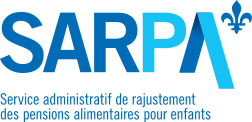Legal aid lawyers are called upon to represent their clients before the court and to provide legal advice. Over the years, they have developed specific expertise in various areas of law. They are there for you, so don’t hesitate to contact them. The following list of areas of activity is not exhaustive. For more information on the services provided, contact the legal aid office nearest you.
The nature of the services required must comply with the Legal Aid Act and its regulations.
Civil law
Family law
Criminal and penal law
Youth law
On-call service
This service is provided to arrested or detained individuals to allow them to quickly consult a lawyer regarding their rights during arrest. The phone number is posted in the police stations and other custody facilities.
This service is available 24/7.
The law enforcement officers who detain the individual have the obligation to provide the information and means for the detainee to contact this service privately.
During regular business hours, the service is provided by lawyers at the Centre. You may also phone directly to the office nearest the place of arrest.
During evenings, at night, during the weekend and on statutory holidays, the service is provided by lawyers of the Centre communautaire juridique de Montréal who will forward the information gathered to the Centre communautaire juridique de l’Abitibi-Témiscamingue shortly.
Telephone: 1 800 842-2213
Homologation assistance service (HAS)
As of October 10, 2013, the Homologation Assistance Service (HAS), that is, the modification of judgment terms in family matters, is provided to all parents, whether they are eligible to legal aid or not.
Who has access to the Homologation Assistance Service?
The Homologation Assistance Service is intended for separated parents who jointly agree to modify judgment terms relative to child custody, child support or child and spousal support (or former spouse) for whatever reason, when they have already obtained a judgment relative to child support or child and spousal support.
The parties chose a lawyer (a permanent aid staff member or a lawyer in private practice) who prepares the documents of their joint application for the agreement to be homologated. The latter is sent by mail to a special clerk of the Superior Court who homologates the agreement, which becomes a judgment of the Superior Court and is then executory. If the judgment anticipates a child support, a copy of the judgment will be sent to the two parties by their lawyer and to Revenu Québec by the clerk.
The individuals must not be financially eligible to legal aid to have access to the HAS. The service is provided to the entire population upon payment of a $637 sum (that is, $470 in professional fees and $167 in legal fees), which is divided equally among the parties. The persons that are financially eligible to gratuitous legal aid have no fees to pay, and those eligible under the contributory scheme pay the lowest amount between the contribution calculated in accordance with the Regulation respecting legal aid or the HAS fee.
For more information
- On the applicable eligibility requirements
- On the documents required to open a file
- On the file’s progress
- On the service costs
And to find answers to your questions, you may refer to the 'Homologation' tab on the Commission des services juridiques’ website.
Child support adjustment service (SARPA)
Since April 1, 2014, the Service administratif de rajustement des pensions alimentaires (SARPA or child support adjustment service) allows parents to recalculate the amount of child support payments for an underage child, using an administrative approach. For more information, you may contact the phone service at 1-855-LeSARPA (1-855-537-2772) or visit the website.

Social law